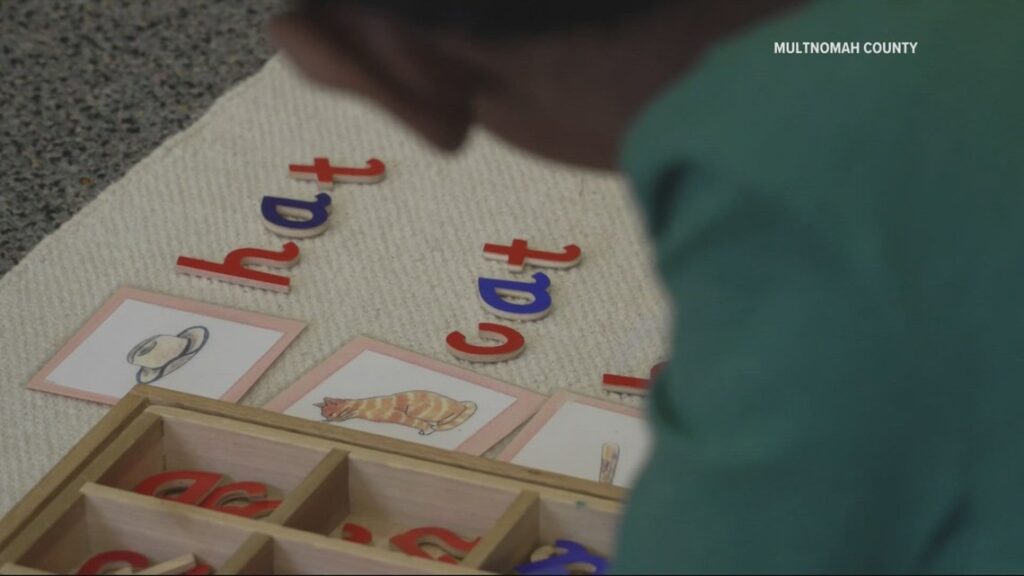In a letter, Kotek stated that they are at a “crossroads” for the program that’s on an “unsustainable” trend, which Vega Pederson refuted.
MULTNOMAH COUNTY, Ore. — Oregon Gov. Tina Kotek urged Multnomah County Chair Jessica Vega Pederson to ease the county’s tax-funded “Preschool For All” program, saying it’s pushing taxpayers out of Portland.
In 2020, voters approved the tax, which taxes higher-earning residents in Multnomah County to fund a free preschool program for 3- and 4-years-olds. The program involves taking 1.5% of income over $200,000 for joint filers, as well as another 1.5% on income over $400,000 for joint filers.
But in a letter to Vega Pederson on June 10, Kotek stated that they are at a “crossroads” for the program that’s on an “unsustainable” trend, writing, “Right now, Multnomah County’s higher income earners shoulder the second-highest top marginal income tax rate in the country at 13.9%.”
She added that there’s an overall decline in the number of taxpayers filing for the PFA tax — a drop of more than 1,700 total filers since 2021, according to May data presented to the Portland Central City Task Force.
“The data … suggests that the PFA tax is creating an environment that discourages higher income earners, and any business associated with those earners, from staying or locating in Portland,” Kotek warned.
Vega Pederson responded Wednesday, saying, “I disagree with the way the program is characterized in your letter,” disputing the 1,700 figure. She also suggested that the PFA tax’s decline in total revenue from tax year 2021 to 2023 could be because of “macroeconomic factors.”
However, she agreed that changes are needed to balance the economic health of the county, including providing potential tax relief starting in the 2026 tax year. This includes, according to her reply letter, indexing the tax threshold to inflation and entertaining a higher income threshold.
Vega Pederson added that she will be finalizing a plan to revise the PFA tax in the coming weeks.
“I want to be clear when I say that the financial health and well-being of Multnomah County is my utmost priority and concern,” she wrote, in part. “I am open to changes to the tax rate and to the tax mechanism. However, it is crucial that future decisions are guided by economic research and a community-centered and equity-driven process. Hasty decisions or piecemeal changes to the tax mechanism or rollout of this program will not serve Multnomah County or the future we’re delivering.”
In her letter, she noted that the county is on track to provide free preschool to every 3- and 4-year-old child by 2030, with 3,800 fully paid seats in this coming year, but “demand continues to outpace supply” — due to both a nationwide child care shortage and lack of affordable child care options within Multnomah County.
In April, a county audit had said that the program has been slow to meet their goals so far, adding that the county needs to expand its capacity in order to meet the need. The audit suggested that the county also needed to communicate better with the public on how the program is going.

